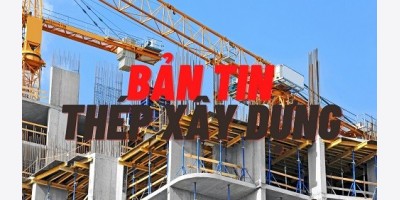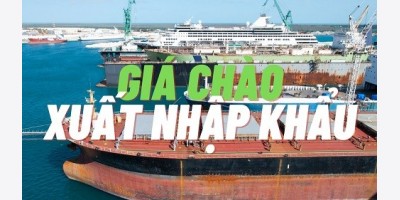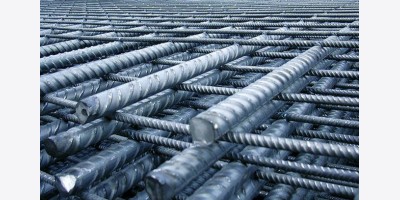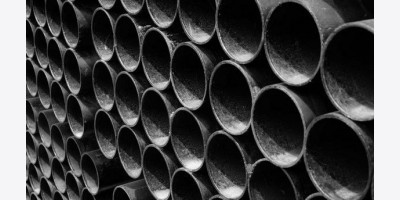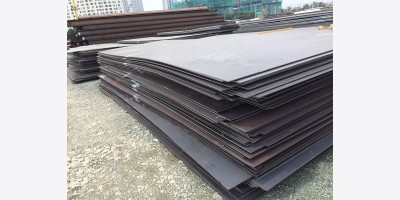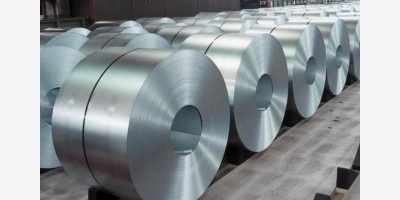| Thailand mulls safeguard duty on alloy-added flat steel | ||
| Thailand's Ministry of Commerce is planning to impose a temporary duty on imports of hot rolled flat products, in coils and lengths, containing certain amounts of added alloy elements such as boron and chromium, according to local press reports confirmed by Bangkok-based sources. After chairing a meeting of the country’s Anti-dumping & Countervailing Committee last week, Thai commerce minister Boonsong Teriyapirom was quoted as saying that committee members had decided to take the safeguard measure against imports by imposing a duty of on imports (HS tariff code 7225) at the rate of 33.11%. The existing duty for these imports is 0-5%. The safeguard measure will be enforced for the period of 200 days after an announcement is published in the Thai royal gazette, expected within the week. When contacted, Thai commerce ministry officials said that no public announcement had been made as yet, and declined comment further. “It is not official yet, but I am 99% sure that it will happen,” a Thai pipe producer said. He said that he purchased imports because domestic HRC products were not competitively priced and that supply of the grades he required was unstable. "No one producing for the local market dares to import HRC with boron or chrome-added," a Thai trader said. His customer told him that the duty would be "imposed soon." The safeguard investigation was initiated last November. The targeted products are 0.9-50.0mm thick and 100-3,048mm wide and are classified under customs tariff codes 7225 and 7226. The investigation excluded hot rolled flat products subject to cold rolling and hardening processes for automotive applications.
| ||
| Italian rebar slips on poor demand | ||
| Italian rebar prices have decreased amid weak demand in the domestic market and a slowdown in the export market, Platts learned from market sources. Since the end of last week rebar has weakened by further €5/metric ton to €230-235/mt ex-works base prices, taking the effective prices for 12mm rebar to €480-485/mt ex-works. On the export side rebar went down as well, with mills now offering €475/mt FOB; just a few days ago they were still officially asking €490/mt, although were ready to sell at €480/mt fob. Algerians have backed off in the last few weeks, buying only few tonnages, and there are rumours that "for this round" Algerian importers closed deals for only small tonnages with mills outside of Italy at more competitive prices. Italian mills are complaining that scrap prices for the moment are too high; after rising by around €10-15/mt for December contracts, some mills registered an increase of another €5/mt for January contracts. Also according the chamber of commerce of Brescia – the main hub of long steel producers in northern Italy – rebar and all the main long products are in a downtrend. Between 14 January and 4 February the chamber registered a price decrease for rebar of €15/mt to €235-245/mt ex-works base, slightly above the prices reported by Platts sources.
| ||
| Magang raises flat steel prices; spot market quiet | ||
| Eastern China’s Maanshan Iron & Steel (Magang) released its February list prices for flat rolled products on February 5, raising hot rolled coil, cold rolled coil and hot-dip galvanized coil prices all by Yuan 100/metric ton. The company also asked for an extra Yuan 50/mt for HRC delivered in the last ten days of January. As a result, its February Q235 5.5mm HRC price was listed at Yuan 3,920/mt, while SPCC 1.0mm CRC was at Yuan 4,500/mt and SGCC 1.0mm HDG at Yuan 4,780/mt, all excluding 17% VAT. As more and more market participants had ceased trading for Spring Festival holidays, which officially start this Saturday, the spot market saw little reaction to Magang’s price rises. On Tuesday, the lower range of Q235 5.5mm HRC prices in Shanghai remained unchanged from the previous day’s Yuan 4,200/mt ($674/mt) with VAT, while the top of the range increased by Yuan 30/mt to Yuan 4,250/mt. However, some local traders told Platts that almost no transactions had been made at those higher prices. Meanwhile, prices for similar material in Guangdong's Lecong steel market were at Yuan 4,250-4,270/mt with VAT, unchanged from Monday. One Lecong trader said the slow market had led HRC inventories in Lecong to climb by a further 20,000 mt last week to 840,000 mt.
| ||
| 2013 prospects remain bleak, mild recovery in 2014, Eurofer | |||||||||||||||||||||||||||||
European apparent steel consumption will fall again slightly in 2013, before improving in 2014, the European steel association Eurofer said on Tuesday. In a new report it said activity in the main steel-using sectors is expected to register a further decline this year due to the continuation of difficult operating conditions in the EU, particularly in construction and automotive. A mild rebound is forecast for 2014, in line with the expected economic recovery in the EU. “We do expect a more supportive economic environment towards the end of the year. But it will take most of 2013 before our customers in industry and the steel distribution chain will notice any improvement in business conditions. Confidence may be rising, but only from a depressed level. Financing and credit are still tight. Companies remain highly risk aversive. Steel market conditions will remain difficult for the time being”, Eurofer director-general Gordon Moffat stated. According to the association, the late-2012 rise in bookings confirms the likelihood of a “technical restocking” in Q1-2013. However, the market will continue to lack any positive demand impulses from end-users until the final quarter of the year, it said. “The EU steel market in 2013 looks set to remain fragile. There is continued risk of supply and demand distortions. The stronger euro could attract more imports, even though real steel consumption is to remain subdued”, Moffat said. In 2013 exports are expected to stagnate at the 2012 level. The domestic market will remain sluggish; in particular producers of long products for construction applications will try to maximise exports in order to keep capacity utilisation rates as close as possible to a reasonable level.
| |||||||||||||||||||||||||||||
| Special Report: Ozkan exploring US scrap, sections project | ||
| The newly formed US arm of Turkey-based steel producer Ozkan Demir Celik Sanayi is looking to enter the US market as both a scrap processor and producer of steel sections, targeting a niche market. With a three-step investment plan, Ozkan Steel USA LLC appears to be taking a cautious approach to its US investment. The first phase calls for a ferrous scrap processing unit with an exact location in southern Louisiana expected to be finalized by June, with construction beginning by year-end. The second phase calls for a steel melt shop with a minimum capacity of 500,000 mt/year and initial production of 300,000 mt/year. The final phase would be a rolling mill with three stages expected to be implemented in a five-year plan. The second and third phases are contingent upon successful scrap collection operations. “First we have to understand where the good scrap is,” Ozkan Steel USA president Ugur Ozkan told Platts. “We have to learn. If you have a melting shop and if you don’t have scrap, you will pay.” Company executives did not rule out acquiring US scrap yards or establishing joint ventures in the states. In November, Turkey-based steelmaker Colakoglu Metalurji established a trading office in Houston to sell finished product and also to ship scrap cargoes back to its Turkey operations. Even with the presence of Colakoglu and the interest of Ozkan USA, Ozkan USA vice president of investments and strategic development, M. Fehmi Nuhoglu, does not see this as a trend. “Why would you come to the US and compete with Nucor,” Nuhoglu said. Ozkan and Nuhoglu stressed the company’s desire to target niche markets with its steel sections, which it contends would be products primarily imported into the US. They did not discuss what specific section sizes and foot-weights would be targeted. “This is my dream project,” Ozkan said. ”I believe the American economy will (become) much better.” Ozkan says he prefers Louisiana as the site for the scrap collection operations over the scrap-heavy Midwest region because of the warm weather. Ozkan Demir Celik Sanayi is based in Izmir, Turkey. It produces 600,000/mt per year of steel profiles used in construction, shipbuilding, electrical transmission towers and mining and tunneling.
| ||
| Brazilian exports of semis grow, flats stable in January | ||
| Brazil's exports of semifinished steel grew 28% in volume and 24% in value in January compared with the previous month. Meanwhile, flat-rolled exports only increased 0.4% in volume and fell 5% in value in the same comparison, according to foreign trade bureau Secex. Brazilian semis exports totaled 601,800 mt last month, up from 468,700 mt in December. Even with a lower average selling price of $495.50/mt FOB in January from $509.10/FOB in December, the overall sales value of the semis exports jumped from $238.6 million to $296.6 million. Brazil's flats exports last month dropped in value to $143.3 million from $150.8 million in December, with shipments virtually stable at 209,500 mt. January had a lower average trading price of $648.30/mt FOB compared with $723.20/mt FOB in the last month of 2012.
| ||
| Taiwan’s Chung Hung Steel raises February coil prices | ||
| Taiwanese re-roller Chung Hung Steel has lifted its prices for hot rolled and cold rolled coil by TWD 650/metric ton ($22/mt) and TWD 450/mt respectively for domestic sale in February, and by $30/mt for March deliveries for export customers, said a senior company official. The increases take its list prices for HRC to around TWD 18,500/mt ($624/mt) and CRC to TWD 21,200/mt, according to the official. The company does not reveal its export prices. The increase is in line with higher global steel prices, said the official. But sales volume in February is expected to be lower as compared to January due to a shorter working month owing to Chinese New Year holidays, noted the official. He added that it is too early to forecast March sales volumes, but “we do see better demand in March as of now.” The company’s January sales data were not yet available but it sold 229,093 mt in December, up 28% from November. Chung Hung’s latest price adjustment is in line with that of its largest shareholder China Steel Corp (CSC), which in late January lifted its HRC and CRC prices by TWD 551-760/mt for March domestic deliveries. Chung Hung has around 200,000 mt/month of hot rolling and 40,000-50,000 mt/month of cold rolling capacity at its Kaohsiung works in southern Taiwan.
| ||
| Korea HRC exports drop 4% to 5.3 million mt in 2012 | ||||||||||||||||||||||||||||||||||||||||||||||||||||||
| Exports of Korean hot rolled coil during 2012 declined by 4% to only 5.3 million metric tons compared with 5.5 million mt in 2011, according to Korea Iron and Steel Association (Kosa) data. Market sources Tuesday blamed global financial turmoil and an unsettled economy for the downturn in Korean HRC exports last year. Total exports to Japan and last year declined by 4% year-on-year and to Vietnam by a huge 24% y-o-y. However, in contrast Korea’s exports to Indonesia surged by 27% y-o-y to 761,000 mt, Kosa noted. “HRC demand from Indonesia has been increasing rapidly,” a Korean trader told Platts. The most recent contract prices for Korean re-rolling grade were at $675-680/mt CFR Indonesia this week, he added. Nevertheless, Korea’s HRC exports to other countries remain sluggish given limited export volume from both Posco and Hyundai Steel for the current quarter. “There are export offer prices from steelmakers but they don’t have sufficient materials to export for the moment,” a Seoul-based trader said, adding that the mills are trying to serve only their long-term clients. Meanwhile, Korea’s HRC imports during last year also decreased to 4.9 million mt, down 8% y-o-y, Kosa said. Japan shipped 2.43 million mt, down 8% y-o-y, while China delivered 2.05 million mt, up just 1% y-o-y.
| ||||||||||||||||||||||||||||||||||||||||||||||||||||||
| China’s Baotou Steel to upgrade rail mill with new tech | ||
| Austria's Siemens Metals Technologies has received an order from Baotou Iron & Steel (Baotou), the largest steelmaker in northern China’s Inner Mongolia, to upgrade its rail rollling operations with a new heat-treatment unit, Platts has learned from the equipment manufacturer. Siemens will supply Baotou with a heavy rail online heat-treatment mill for one of Baotou’s two rail mills. The order includes an induction furnace, a flexible quenching line and process automation. A new inline rail head quenching technology, which Siemens developed with the Italian technical centre Centro Sviluppo Materiali, will be installed for the first time on Baotou’s mill. The new plant is to start trials in early 2014 on a 400,000 mt/y capacity rail mill. Baotou is China's largest producer of rails. The new unit is able to process 150 mt/hour of rails with a maximum length of 104 meters. It will produce special steel rails in a variety of sizes, including asymmetric rails. The upgrade should allow Baotou’s new rail products better resistance against wear and contact fatigue for a longer life, Siemens said. The plantmaker added that it will also cooperate with Baotou to develop new steel grades at the mill and help it to get international certification.
| ||
| Henggang clinches subsea line pipe order from CNOOC | ||
| Hengyang Valin Steel Tube (Henggang), a major seamless pipe producer in central China’s Hunan province, clinched its largest single subsea line pipe order to supply an offshore energy project in the South China Sea. The contract was awarded on January 30 by China National Offshore Oil Corporation (CNOOC), the largest offshore oil and gas producer in China. The order was for 4,400 metric tons of X65 grade seamless subsea line pipes, a company source told Platts. He did not reveal the size of the pipes, however. Henggang hopes to secure more pipe contracts from CNOOC’s second round of OCTG orders this year, which could total about 50,000 metric tons, Platts learned. Henggang is expanding its business in the offshore oil/gas drilling sector, in line with CNOOC’s expansion of its offshore oil production, the source said, and the company hopes to benefit from strengthened cooperation with the offshore operator. Although CNOOC’s annual OCTG demand is much smaller than the other two major Chinese oil companies, pipe for offshore applications has higher quality requirements as it is used in severe offshore drilling conditions, Platts is told. Last year, Henggang supplied about 3,500 mt of X70 and X65 grade line pipes for CNOOC’s Panyu project, while its casing deliveries to CNOOC totaled about 22,000 mt, according to company data. Henggang is able to produce 2 million mt/year of seamless pipe on its six rolling mills.
| ||
| Climb likely in Japan’s FY2012 raw steel total | ||
| A forecast for current quarter crude steel production tabled Monday by Japan’s Ministry of Economy, Trade & Industry (Meti) would see the country’s total raw steel output for the year to March 31 reach 106.78 million metric tons, a tiny but important 0.3% rise over last fiscal’s total. Traditionally, the Japanese steel industry places more significance on its fiscal rather than calendar year performance and a rise – albeit small – would show how successfully producers have weathered exchange rate fluctuations, a sluggish domestic economy and export market challenges. According to Meti’s forecast, raw steel output during the current quarter will reach 26.11 million mt, up 0.8% on October-December, or equivalent to 200,000 mt. If realized, this would give a fiscal 2012 total of 106.78 million mt, up from the fiscal 2011 total of 106.46 million mt. Shinya Higuchi, a vp at Nippon Steel & Sumitomo Metal Corp was quoted as being “delighted” with Meti’s forecast, adding that there was little fear of a market downturn. But a Meti official, fearing the mills would take the upbeat forecast to heart and boost production, counseled caution saying more time was needed for economic stability to be achieved. An increase in production was unnecessary for now, he said.
| ||
| Hebei province targets just 30 steelmakers by 2020 | ||
| Hebei province’s steel industry restructuring plan is almost ready to be submitted to China's State Council, according to a press release issued by the National Development and Reform Commission. This plan, which is expected to be approved within the first half of this year, aims to reduce pig iron capacity from 273 million metric tons/year to 210 million mt/y, crude steel capacity from 286 million mt/y to 220 million mt/y and rolling capacity from 298 million mt/y to 240 million mt/y by 2020. Meanwhile, the province’s steel companies would be consolidated from 150 to 50 by 2015, and to around 30 by 2020. Of these 30, 15 mills would play a leading role in the provincial steel industry. Hebei Iron & Steel and Shougang would top the 15 mills, while it remained unclear which others would be among the remaining 13. However, some industry analysts doubted how the plan could be carried out, noting that Hebei province’s steel enterprises number well over 150, and the consolidation efforts so far have proved to be very unsatisfactory. Analysts noted that Hebei province’s Changcheng Iron & Steel Group, formed in late 2008 by 'merging' 27 privately-owned steel mills boasting a combined crude steel capacity of 13 million mt/y, remains just a name presiding over 27 separate plants with the same capacity as previously. Attempts by the mills to combine their purchase and sales functions soon after consolidation failed and each mill continues to operate its business separately.
| ||
| Japanese scrap exports to Korea inactive | ||
| Bookings for Japanese scrap placed by Korean mini-mills have been inactive so far this week as the Japanese scrap suppliers are seeking higher prices compared with those contracted last week, Korean traders said on Tuesday. Korean mills are willing to purchase Japanese scrap to benefit from the depreciated Japanese currency, but Japanese dealers believe their scrap is undervalued compared with US scrap. Thus they are eyeing lifting offer prices, one told Platts. “Export prices for Japanese scrap look set to rise in the near-term,” he added. The latest contracts for Japanese H2 grade scrap were concluded at Yen 32,000-32,500/mt ($346-351/mt) FOB among Korean steelmakers last week, Platts was told. In the Korean market, scrap deliveries from domestic suppliers will be restricted beginning late this week through early next when the country observes Lunar New Year – Korea’s most important holiday. Hyundai Steel will stop receiving domestic scrap during February 9-11, and Dongkuk Steel Mill and other mini-mills have similar plans, Platts is told. Korea’s ferrous scrap imports during 2012 jumped by 19% to 9.65 million mt compared with just 8.1 million mt a year earlier, according to Korea Iron and Steel Association (Kosa) statistics. Imports from Japan stood at 4.74 million mt, a huge increase of 66% year-on-year, while those from the USA declined to 2.54 million mt, down 8% y-o-y. Those from Russia accounted for 907,000 mt, down 10% y-o-y.
| ||
| Posco resumes progress on much-delayed Indian project | ||
| Korean steelmaker Posco reaffirmed plans Tuesday to build an initial 8 million metric tons/year of steelmaking capacity in eastern India’s Odisha state once the necessary 1,091 hectares of land has been secured. An Odisha-based company spokesman told Platts that the state government resumed the process of land acquisition over last weekend in Gobindpur village – the planned site of the steelworks. Land acquisition for the project has been proceeding only intermittently amid fierce local opposition ever since the project was first mooted in 2005. As of last October, the state government had transferred some 221 hectares to Posco, which has since remained unchanged. Once the company secures the remaining 870 ha of land, construction would begin, the spokesman said. Local media reports Tuesday said Posco was planning to begin crude steel production in Odisha by 2018. Further plans to ramp-up capacity to the initially envisaged 12 million mt/year would depend on the availability of an additional 525 ha of land, the spokesman told Platts. In another development, Posco India Delhi Processing Centre is reported to have been slapped with tax evasion charges by the Indian Directorate of Revenue Intelligence. Indian media reports last week said the coil center, with 120,000 mt/year of processing capacity, had allegedly imported some stainless steel but had evaded anti-dumping duties applicable on these imports. The directorate is said to have imposed a penalty of Rupees 100 million ($1.9 million). The Posco spokesman as well as officials at the Delhi center declined comment to Platts on the reports.
| ||
| India's NMDC leaves domestic ore prices unchanged for Feb | ||
| State-owned Indian miner NMDC has decided to keep its domestic iron ore contract prices for this month unchanged from January levels, a company official confirmed to Platts Tuesday. For February, NMDC has priced its contracts at about Rupees 5,060/metric ton ($95/mt) for supplies of 6-30mm blast furnace-grade lumps of 65.5% Fe, and at about Rupees 2,610/mt ($49/mt) for 64% Fe fines. All prices are on a free-on-rail basis. The decision to leave domestic prices unchanged, despite the movements in international spot prices in January, was owing to reluctance on the part of NMDC’s domestic customers to procure material at the prices offered, the official said. “For lumps, customers are not willing to pick up material saying our prices are too high,” the official said. As reported, the miner had pared lump prices by Rupees 320/mt in January, a 6% drop from the previous month. The official added that domestic buyers had also baulked at the miner’s offer prices for fines. “(Indian) buyers are claiming they would import fines. So we have decided to leave the prices unchanged for a month to see how we fare against import offers,” the official added. However, he said that NMDC’s ore sales had picked up in January, topping 3 million mt, though sales figures for the previous month were not available. NMDC last lifted the price of iron ore by 8-13% for the July-September 2012 quarter when international prices were low. Since October, the miner decided to review its prices on a monthly basis; it cut prices by 2-11% in October and again by 3-11% in November but left prices unchanged in December.
| ||
| Indian pre-engineered steel buildings market slated to grow | ||
| The Indian market for pre-engineered steel buildings (PEB) is witnessing “robust growth” propelled by infrastructure development and the rising popularity of PEB systems in the industrial sector, business consultancy Frost & Sullivan said in a report Tuesday. The size of the India’s structural steel buildings market stood at 5-5.5 million mt in 2011, with the PEB segment accounting for about 537,176 mt, or about 9.5-10% of the total. The PEB market is estimated to grow to a volume of 900,000 mt by 2016 at a compounded annual growth rate of 11.1%, the report said. Planned development of new power plants, factory buildings, commercial buildings, warehouses and metro stations would generate potential opportunities for use of PEB systems in coming years, the company said. The market has also seen an increase in the use of high-grade steel that is lightweight and recyclable, conforming to ASTM Grade 50 standards, it added. The statement also cautioned that the PEB segment in India would face several challenges including rising costs and a shortage of skilled manpower, as well as competition from other building structures such as those made of structural steel and concrete. As steel prices account for 55-60% of the total production cost of PEB systems, fluctuations in the steel market would have a direct bearing on the price trend of PEB systems and pressurize the profit margins of the suppliers of such systems, the report said.
| ||
| Turkish CRC buyers yet to accept price hikes, trade scarce | ||
| Turkish cold rolled coil trade remains slow in the first week of February, owing both to weak demand from end-use sectors, such as automotive and white goods, and a downward correction in local hot rolled coil prices, Platts learned from market participants on Tuesday. “End-use demand is slow. Producers are asking for $720-740/metric ton ex-works for CRC like last week; however, transacted prices are lower at $715-725/mt. Producers have not yet been able to achieve desired price increases. Demand has been insufficient till now to support significant price hikes,” a trader said. “The latest CRC import offers I heard from CIS are at $635-675/mt FOB, depending on the origin and tonnage, but there isn’t much demand. CIS producers are expected to return to the market in the coming days with higher prices for March rolling; consequently some movement may be seen in the market, but a significant increase in demand should not be expected in the short-term,” another trader observed. Rising production costs and CIS producers’ higher offer prices may push up local prices, but this rise will be limited until demand shows significant recovery, sources believe. Meanwhile, producers are asking for $620-640/mt ex-works for HRC, $800-820/mt ex-works for 0.5mm thick hot-dip galvanized coil and $940-970/mt ex-works for 0.5mm thick 9002 code colour-coated galvanized coil (PPGI), Platts SBB learned.
| ||
| ArcelorMittal to restart idle sheet piling line in Poland | ||
| ArcelorMittal is going to move its idled line for servicing sheet piles from Rodange, Luxembourg, to Dabrowa Gornicza, Poland, where it will be restarted after necessary adjustments have been made, the steelmaker told Platts. “It is a flagship project along with long rail production in the heavy section mill, the company said. Its planned annual capacity is 85,000 metric tons. At the new unit sheet piles produced at the Dabrowa Gornicza heavy section mill will be tailored cut, spot drilled, piled, clamped and built as per customer’s requirements, the company noted. “We believe that it will make us even more competitive”, commented Manfred Van Vlierberghe, CEO of ArcelorMittal Poland. “After detailed cost analysis of this activity and after discussions with our colleagues from ArcelorMittal Group we decided that the most favourable solution was to adjust the technological line of sheet pile servicing from Rodange in Luxemburg”, Pawel Nowakowski, senior project manager explained. The Rodange plant has been idled since October 2011.
| ||
| Correction: Icdas cuts rebar prices | ||
| Icdas’ new rebar price levels represent a TRY 45/metric ton ($26) decrease on the company’s previous price list, not an increase as was wrongly reported in Tuesday’s Platts SBB Daily Briefing.
| ||
| Turkish long product prices remain stable at start of week | ||
| Long product prices from Turkish steel mills and traders were stable-to-slightly-down at the start of this week. Despite an announcement from Icdas stating a hefty decrease in its list price for domestic rebar, offers and sales took place at only marginally lower levels compared to the end of last week, market participants told Platts on Tuesday. Rebar changed hands in Iskenderun at $600/metric ton ex-works, while some mills were selling to Iran – where local prices are at record high levels – at $605-610/mt ex-works. Billet in Iskenderun was sold on Monday at $542/mt ex-works for 5,000 metric ton, although on Tuesday mills were looking for $550/mt ex-works. Further north, re-rollers were informing traders that sales on deferred payment basis were taking place above $600/mt ex-works Istanbul. The lowest list price in Izmir was at the same level. On seaborne export, Turkish rebar prices are weak enough to become competitive again for Egyptian importers. Offers were pegged at $610/mt CIF; bids at $10/mt lower. If a mid-point of $605/mt CFR is achieved, this is still $18/mt below the local list price of domestic mill Ezz Steel (excluding 8% VAT). Few mills are making rebar available at levels even close to $590/mt FOB Turkish ports this week, with many targeting $600/mt FOB and above for March output. However, traders are targeting the lower level for prompter shipments. Platts rebar daily assessment remained at $592/mt FOB Turkish ports on Tuesday. Elsewhere, a mixed containerized cargo of 200 mt containing equal angles and square bars was sold to West Africa at $700/mt CFR, with freight calculated at $55/mt.
| ||
| Aperam may reorganise EU production with Terni asset | ||
| Stainless steel producer Aperam might reorganise some of its production in Europe if it succeeds in acquiring Italy’s Acciai Speciali Terni (AST), formerly part of Inoxum and currently up for sale, Platts learned from an Aperam conference call. During the call with analysts, Philippe Darmayan, CEO of Aperam, again confirmed the company’s interest in AST as it will create synergies with its current operations located mostly in northern Europe. Answering a question regarding possible production closures at the company’s mills in Belgium as a result of an acquisition of AST, Darmayan said that Aperam’s main interest in the integrated Italian mill is on the sales network of the unit in Italy and southern Europe. “We might decide to concentrate some production at AST from northern Europe, but this will be established when we prepare the business plan,” he said. Aperam said that it would finance the purchase of Terni through equity, but sources in the market noted that shareholders might not support this project. The European stainless sheet sector has already started seeing some long overdue rationalisation following Outokumpu’s recent acquisition of Inoxum assets, but it remains unfinished business until the future of AST is sorted out. Aperam could provide the solution (see related article on the impact of such a deal). Regarding the general European stainless demand, Darmayan said he expected a similar environment in 2013 as in 2012. The company also noted that as of December 2012 the stock levels at stainless steel service centre reached a three-year low at 55 days of sales, according to its estimates, below the lowest point recorded during 2009.
| ||
| Aperam purchase of AST could get Brussels' blessing | ||
| Aperam's latest comments about the possibility of it buying the integrated stainless steel making operations of Acciai Speciali Terni (AST) in Italy indicate that a major attraction is the Italian mill’s sales network in southern Europe (see related article). Also, for the company now to be talking so openly about such an acquisition strongly suggests that it is not expecting serious opposition from the European Commission on anti-competition grounds. The original Outokumpu/Inoxum merger proposal fell foul of the EC because of concern that such a large entity (initially 4.7 million metric tons per year of mainstream flat rolled melting capacity in Europe) could have a major influence on prices; an influence that, in the EC’s view, the remaining two smaller players (much less than half this size in Europe) would have found more profitable to follow, rather than compete with “sufficiently aggressively” to moderate. With AST taken out of the deal, Outokumpu’s new entity has about 3 million mt/y of commodity flat rolled melting capacity in Europe, but this will fall to 2.4 million mt/y with the closure of the Krefeld plant later this year. Meanwhile, in acquiring AST, Aperam’s European stainless flats melting capacity would step up from around 2.1 million mt/y to about 3.8 million mt/y. Such a move would leave the market with three, rather than the previously four indigenous producers (Acerinox with about 1 million mt/y in Europe is the third). However, the disparity in size (and therefore influence) between the smallest and largest players would not be so large, and could satisfy the commission, particularly if, in order to clinch the deal, Aperam offered, or was told, to close one of its two melting sites in Belgium, bringing its capacity closer to 3 million mt/y. In such a scenario the melting and casting operations of the Genk plant could be most at risk, for unlike the Châtelet site it has no hot rolling mill.
| ||
| French scrap rose in January, February in downturn | ||
| The monthly French scrap prices rose by €5-7/metric ton for all grades in January compared with December, Platts learned from the latest data issued by the French Steel Federation (FFA). According to the monthly scrap index, E3 (heavy melting) scrap rose to €299/mt ($406/mt) from €293/mt, E40 (shredded) rose to €314/mt from €308/mt and E8 (new arising) increased to €311/mt from €304/mt. According to local sources, the trend for the scrap prices in February is for a decrease in the first part of the month, in line with other European countries, on poor demand from the mills due to the difficulty to sell the finished products. “Scrap collectors have a fairly quiet moment. Prices are expected to go down because mills have stocks and are pushing for lower prices because they are struggling to make margins”, a French scrap dealer said to Platts.
| ||
| SMS Meer to supply Russian rebar mill with roughing stands | ||
| SMS Meer is to supply Russian Abinsk Electric Steel Works with two new roughing stands for its high-speed rebar rolling mill, the German plantmaker announced in a statement on Monday. The upgrade means that Abinsk, in the southern region of Krasnodar, can increase its production of 8-10mm rebar by between two and three per cent. Once the roughing stands have been installed, Abinsk will also be able to roll square billets up to 150mm in diameter. Currently the mill uses 130mm square billets only. According to SMS Meer’s statement, the new stands are expected to be commissioned by April this year. Abinsk started production in July 2010 and has a capacity of 500,000 metric tons per year. It sells its 8-32mm rebar mainly to the domestic market.
| ||
| Severstal moves into structural steelwork | ||
| Russia’s Severstal has entered the structural steelwork fabricating business with the acquisition of Oryol Steel Fabrication Plant (ZMK) in western Russia. The asset became part of Steel Solutions, Severstal’s newly established segment that creates design projects and now also manufactures steel structures for the construction industry. The steelmaker has been eyeing the structural fabrication market since 2005, noting that other steel companies find it helps them sell their own products – especially high value-added products – and reach out directly to end-users. It also enhances stability especially in recession times as the construction sector might continue to generate orders when other steel-using sectors fail. Additionally, captive steel fabrication assets speed up the processes of introducing the market to new steel grades or products, the company told Platts in an email. ZMK may need up to 13,200 metric tons of rolled steel products this year but once its capacity is increased, its steel needs may grow too. Its current intake is 60% plate, 30% hollow sections with the remainder being beams and sections. ZMK is able to produce 12,000 metric tons/year of steel structures but Severstal plans to triple its capacity to 36,000 mt/year by 2014-2015 as well as cover the plant’s entire steel requirements with its own output so that it doesn’t need external suppliers which now include MMK and NLMK. Severstal hopes to grow its share of the Russian steel fabrication market to 10% by 2018, when its capacity for steel structures is expected to reach 260,000 mt/year. The company estimates the current market at 2.6 million mt.
| ||
| US sheet steady, but maybe not for long | ||
| US sheet pricing appears level week on week, though market sources say it’s likely to lurch one way or the other soon. Which direction, however, remains a mystery. “There’s not a lot of strength in new orders,” said one broker. “But there’s not a lot pushing (the market) down, either.” One distributor said the most recent round of mill increases seem to be “gaining some traction,” though uncertainty about February scrap pricing has got many buyers on edge. “I’m a little concerned about a possible drop in scrap in February, which I think would really undermine any type of increase,” he said. A mill source said order inquiries are on the rise, but they’re not coming in at their usual volume following an increase. “I think it’s still a little quiet out there,” the source said. “I think because it’s all perception, it’s too much perception.” In late January, Platts assessed hot-rolled coil at $620-640/short ton and cold-rolled at $730-750/st. Hot-dipped galvanized is currently holding at $785-800/st. All prices are ex-works and normalized to a Midwest mill basis.
| ||
| Valmont to acquire Asia-Pacific infrastructure firm | ||
| Diversified irrigation and infrastructure fabrication firm Valmont Industries of the US has acquired Locker Group Holdings, a manufacturer of perforated and expanded metal non-residential construction products for the Asian and Australian markets. Omaha, Nebraska-based Valmont did not release financial details regarding the acquisition, but said Locker has annual sales of about $80 million, and it expects the acquisition to be “slightly accretive” to its 2013 earnings. “The acquisition of Locker Group enhances Valmont’s position in the access systems market while further adding complementary exposure in the perforated and expanded metal products markets,” said Vik Bansal, Valmont’s group president for the company’s global engineered infrastructure products segment.
| ||
| Scrap prices move down $20 in Cleveland, Detroit | ||
| Steel scrap price negotiations for February requirements favored American steel mills on Tuesday with the Cleveland market settling down $20/long ton compared to the prior month, early Detroit sales being done at down $20/lt and negotiations in other cities ranging from down $10 to down $20/lt. Continued weak mill demand for scrap has broken a three-month period of flat pricing. Negotiations in the Chicago market started with mills seeking prices down $20/lt and dealers countering with quotes of down $10/lt. The Detroit market was in a similar position as of early Monday with dealers starting to sell at down $20/lt by late Tuesday. In Pittsburgh one scrap dealer was not yet willing to concede down $20/lt. The Southeast market was heard to be negotiating in the range of down $10-20/lt. A New York mill purchased cut grades down $20/lt and shredded scrap down $27.50/lt. The Northeast had been a pocket of rare pricing strength last month buoyed by strong export sales. Export prices and cargoes have since dwindled and US East Coast dockside prices dropped $5/lt this week. Based on the finalized deals and ongoing negotiations, the Platts assessment for shredded scrap moves down to $370-375/lt delivered Midwest mill. Planned outages at mills have been reported at multiple operations in New York and Ohio, furthering the demand decline for scrap. Multiple scrap dealers reported having very little leverage in negotiations despite pockets of inclement weather in the US. A major Southeast mill bought No. 1 busheling scrap at prices representing a $20/lt decrease from January. Some scrap dealers indicated they would hold back tonnage if prices moved down $20/lt. “How many tons can you hold back?” one Midwest scrap dealer pondered. “There will be some resistance, but it might be futile.”
| ||
| Arch: Met coal market to shape up in 2013 | ||
| St. Louis-based thermal and metallurgical coal producer Arch Coal expects the met coal market to tighten in 2013, though global market conditions remain fragile. “Improved performance in China’s manufacturing sector, resilient steel utilization rates in North America and economic stabilization in eastern and, in some cases, western Europe all point to higher steel output, and stronger metallurgical coal demand, in 2013,” the company said in its year-end earnings review. “At the same time, global metallurgical production curtailments have reached nearly 35 million mt annualized. These supply and demand trends should lead to better balance in metallurgical markets as the year progresses.” Arch expects to sell 8-9 million mt of met coal in 2013, out of an expected coal total of 133-144 million mt. The company as a whole recorded a net loss of $77 million in 2012 on total sales of $4.2 billion. “Looking ahead, we will focus on what we can control – costs, capital spending and sales commitments," said CEO John Eaves in the review. "While we can't predict exactly when demand will accelerate, we are well positioned to deliver improved results when it does. As market fundamentals strengthen, we expect a favorable impact on sales volumes and pricing in future periods."
| ||
| SunCoke's net rises on improved coal, coke sales | ||
| SunCoke Energy of the US increased metallurgical coal production in the fourth quarter of 2012 year on year, and revenues benefitted from higher selling prices. The company expects coal production in 2013 to be in line with 2012. The company’s metallurgical coal mining operations in Virginia and West Virginia contributed to year-end coal production in 2012 of 1.48 million st, compared to 1.36 million st produced in 2011. Coal production in 2013 is expected to be about 1.4 million st, the company’s fourth quarter earnings report said. Illinois-based SunCoke reported 351,000 st of met coal production in Q4, compared to 349,000 st in the year-ago quarter. Q4 sales increased by 7,000 st to 370,000 st from 363,000 st in Q4 2011. The average sales price in Q4 was $165.77/st, compared to $158.47/st in Q4 2011 – a $7.30 increase year on year. Suncoke CEO Fritz Henderson said the company’s performance "was driven largely by three factors: the near-flawless startup of our Middletown operations, better results at Indiana Harbor and continued strong performance across our entire US cokemaking fleet.” Domestic coke production in 2012 was 4.34 million st, up 15% from 3.76 million st in 2011. Q4 domestic coke production was 1.08 million st, compared to 1.02 million st a year earlier. Domestic coke production in 2013 is expected to exceed 4.3 million st. Full-year net income rose 63% to $98.8 million in 2012, up from $60.6 million in 2011.
| ||
| Steel buyers look to maintain inventories, backlogs: survey | ||
| US steel buyers are not anticipating worsening market conditions. The Institute for Supply Mangement’s January steel buyers’ survey asked what they expect their incoming orders to be for the next three months, and 63.6% said they’d be the same (45.5% in December), while 36.4% said orders will be up (27.3% in December). No buyers said orders will be down, while December’s survey reported 27.3% of buyers said orders would decrease. A large majority – 72.7% - said their backlog will be the same in the next three months (54.5% in December), while 27.3% expect their backlogs to increase (27.3% in December). No buyers expect their backlogs to decrease as of January (18.2% in December). ISM found 63.6% of buyers will attempt to maintain their inventory levels in the next six months (36.4% in December), while 36.4% plan to decrease their inventories (54.5% in December). No buyers said they will attempt to increase their inventories as of January (9.1% in December). Michelle Applebaum, managing partner of Steel Market Intelligence, said in a report, “We think buyers' own businesses improved in January after fiscal cliff issues were avoided as some 60% of buyers reported that their current order books (at present production rates and no new orders) were greater than two months, a significant improvement from 33% in December and the best reading since May 2012.”
| ||
| Iron ore shipments hit record at CAP, steel stagnates | |||||||||||||||||||||||||||||||||||||
Compañia Minera del Pacífico (CMP), the mining unit of Chilean integrated steelmaker CAP, shipped 12.2 million mt in 2012 - a record high, CAP said in its financial results. The volume is 7% above the 11.4 million mt shipped in the previous year. Of CMP's ore shipments, 10.4 million mt were designated for export; 1.8 million mt were delivered domestically. In Q4, the company sold 4 million mt of the raw material - 59.5% more than in Q3 2012 and 32% more than in Q4 2011. The average price of ore traded by CMP throughout 2012 plummeted 26.2% compared with 2011, reaching an average of $113.21/mt. In Q4, the price was $102.70/mt, slightly above the $100.15/mt from Q3. In contrast to the ore business, steel sector results did not give CAP a reason to celebrate. Shipments of rolled products made in Compañia Siderúrgica del Pacífico (CSH), the company's steelmaking unit, totaled 1.1 million mt in 2012, 0.9% more than in 2011. The company dedicated 99.8% of its deliveries to the domestic market. In Q4, 248,946 mt of rolled products were shipped - 6% less than in Q3 2012 and 8% less than in Q4 2011. The average price of the rolled products traded by CSH throughout 2012 was $811.05/mt, 8% less than the $883.06/mt in 2011. In Q4, the price was $746.32/mt versus $807.24/mt in Q3 2012. CAP's service centers were responsible for shipping 400,000 mt in 2012, 8.2% more than in 2011. In Q4, 112,000 mt were delivered, 17% more than in Q3.
| |||||||||||||||||||||||||||||||||||||
| Analysts: Usiminas ore shipments to jump 49% in Q4 | ||
| Brazilian iron ore miner and steel producer Usiminas is expected to have shipped 49% more ore in the fourth quarter of 2012 compared with Q3 due to growth in internal consumption and increased exports, said a report by Deutsche Bank (DB) analysts. "We expect Usiminas to (have sold) 1.7 million metric tons of iron ore in the quarter, out of which 30% [would have been] in the export market," said the statement, adding that as for the steel segment, DB forecasts shipments of 1.9 million mt. In Q3, Usiminas shipped 1.14 million mt of ore and 1.7 million mt of steel sheet and plate. The bank also said the company's efforts to achieve better results in 2013 may become evident in H1. "We believe that the improvement in Usiminas’ cost of goods sold and SG&A (selling, general and administrative expenses) is currently masked by restructuring charges, and that the positive effects of such restructuring measures should become noticeable from 2Q13 onward," stated the report. "Usiminas is taking the right steps to improve its results in the coming quarters." “Our call is that the company is entering a multi-year period of improving performance due to cost cutting measures, lower raw material costs, development of the iron ore business and improving steel demand in Brazil," DB said. Usiminas is expected to release its Q4 financial results on February 18.
| ||
| CAP’s net profit falls 48% in 2012 | ||
| Chilean integrated steelmaker CAP had a net profit of $327.5 million in 2012, which represented a decline of 48% compared with the $630.1 million earned in 2011, according to the firm's latest financial report. The group's sales totaled $2.4 billion against $2.7 billion the previous year. This included sales of iron ore, rolled steel products and manufactured products. Moreover, the operational costs increased from $1.6 billion in 2011 to $1.7 billion last year. "The reduction in the income and the resultant lower profit was due to the impact generated in our operations by the weakness and strong volatility of the international price of iron ore and the difficult situation experienced by global steelmaking activity," stated CAP. The flats and longs producer ended 2012 with a debt of $718.6 million, 14.2% more than in December 2011. "This reflects (costs related to) the construction of a desalination plant in the region of Atacama, for which 66.6% of the resources come from bank credit," it said.
| ||
| Ternium, affiliates named in CSN lawsuit on Usiminas shares | ||
| Latin American steelmaker Ternium announced yesterday that it was made aware by its affiliate Tenaris Confab of the filing of a lawsuit in Brazil by steelmaker CSN against Ternium Investments, as well as tubemaker Confab and Ternium subsidiary Siderar. The entities named in the CSN lawsuit had acquired shares in Brazilian steelmaker Usiminas in January 2012. While none of the Ternium subsidiaries named in the CSN lawsuit have been officially notified of the claims, Tenaris said the CSN lawsuit alleges that, under applicable Brazilian laws and rules, the participants in the shares acquisition were required to launch a "tag-along" tender offer to all minority holders of Usiminas ordinary shares for a price per share equal to 80% of the price per share paid in the acquisition, or Real 28.8 ($14.51). CSN is said to be seeking an order to compel the companies to launch an offer at that price plus interest. If so ordered, the offer would need to be made for 182,609,851 ordinary shares of Usiminas not belonging to the Usiminas control group; Ternium Investments and Siderar's respective shares in the offer would be 60.6% and 21.5%. Confab's would be 17.9%. Ternium said in a statement it believes "CSN's allegations are groundless and without merit, as confirmed by several opinions of Brazilian counsel and previous decisions by Brazil's securities regulator, including a February 2012 decision determining that the above-mentioned acquisition did not trigger any tender offer requirement." The company added that "Ternium will defend itself vigorously." CSN declined to comment on the matter.
| ||
| Syria's central bank may resume financing some billet import | ||
| Syrian re-rollers are expected to be permitted to import a proportion, most likely up to 50%, of their billet requirements by the government, following the central bank’s decision last month to stop financing imports of the semi-product, according to an Arab Iron & Steel Union (AISU) official in Damascus. The move by the bank, which as reported ceased exchanging Syrian pounds into dollars or euros to finance imports, was made following a request to the government by local steelmakers Syrian Metals Industries (SMI) – part of the Hamsho Group – and Mediterranean Company (also known as Joudco Steel) to be the sole suppliers of feedstock to domestic re-rollers, the official told Platts on Tuesday. “The government has stopped importing billet to study the matter, and within a few days it will be resolved,” he said, adding that some imports should be allowed to avoid a similar situation to that in Egypt, which in December imposed a 6.8% duty on rebar imports, thus allowing producers there to charge higher prices. Mediterranean Company completed its billet capacity increase to 750,000 metric tons/year at the end of 2011; however, power shortages in Syria are forcing it to produce at 40% capacity. SMI has a billet capacity of 700,000 mt/y. Both mills are based in Adra Industrial City, near Damascus, and use domestically-sourced scrap. Neither could be contacted before deadline. Fellow Syrian steelmaker Gecosteel’s attempt to increase its billet capacity four-fold to 288,000 mt/y stalled last year when Indian contractor Apollo pulled its staff out of Syria due to the civil war in the country, according to the official. The firm’s steelworks is currently idled. Rebar producer Hmisho Steel, which is in the process of commissioning its new meltshop, has also suspended output. Even if billet imports resumed, it would be difficult transporting them inland from Syria's ports due to the social upheaval, the official observed. Some 1 million tons/year of rebar capacity is reported to be idled, according to market sources.
| ||
| Omani pipemaker ups sales in 2012, pipe exports down in Q1 | ||
| Omani welded pipe and merchant bar producer Al Jazeera Steel increased its sales revenues 13% year-on-year in 2012 to OMR 3.4 million ($8.9 million). However, exports of welded pipe to the United States have so far this year been notably slower than in the first quarter of 2012, a company executive told Platts this week. This weakening in demand ironically occurred following the US International Trade Commission’s decision last November not to levy duties on circular welded pipe imports from Oman. “The [welded pipe export] market is slightly slower than last year. In 2012 people were buying more in anticipation of the anti-dumping duty in the US (whose investigation began in October 2011). Buyers wanted material before June, so they ordered in Q1,” the executive observed. Local demand, however, remains strong, he added. Al Jazeera’s merchant bar mill, meanwhile, is operating at 80% capacity. The firm’s full financial results, including sales tonnages, for 2012 are expected to be released on February 17. Sales in January-September 2012 were 229,760 metric tons. Al Jazeera has a merchant bar and welded pipe capacity each of 300,000 mt/y.
| ||
| Sentiment on prices drops, but demand outlook firmer - TSI | |||||||||||||||||||||||||
There was a fall in the number of companies in North America, Europe and Asia which expect prices to rise in the next three months, according to the latest carbon steel market survey results from The Steel Index (TSI). However, more companies globally and in North America than last week anticipated stable prices. Demand sentiment among companies in US and Europe rose, though it was unchanged among companies globally. More European companies reported lower stocks compared to the previous week. Globally, 41% of companies expect higher prices in the next three months, down from 50%, with 41% foreseeing steady prices, up from 30%. (See table.) Among US companies, 25% predict higher prices, down from 33%, while 58% expect stable prices, up from 38%. 48% of European respondents expect higher prices, down from 56%, while 21% predict lower prices, up from 13%. The number of companies in North America expecting higher demand in the next three months rose to 42% from 38%, with 54% predicting stable offtake, down from 57%. 36% of respondents in Europe expect higher demand, up slightly from 35%, but 55% expect demand to be steady, down from 59%. An unchanged 41% of companies globally expect higher demand, with 52% foreseeing stable demand. For European companies, 22% noted lower stocks, up from 15%, and 69% had stable stock levels compared to the previous week, down from 76%. An unchanged 21% of respondents globally reported higher steel inventories, while 58% had steady stocks, up from 54%. 14% of US companies noted lower inventory, down from 26%, with 55% showing stable inventory, up from 37% in the previous survey. More information about TSI, a specialist pricing unit within Platts, is available on its website www.thesteelindex.com .
| |||||||||||||||||||||||||
| Spreads show most mill margins have widened since January | |||||||||||||||||||||||||||||||||||||||||||||||||||||
Most steel mill operating margins have widened since mid-January, according to the latest Global Steel Mill Economic Spreads calculated and published by Platts. Most noteworthy are the widening spreads for Chinese steel producers. Since January 14 the billet-rebar spread has increased by 34%. The China hot metal spread has widened by 2.1%, the flat steel spread by 1.6% and the long product spread by 2.9%. The Turkish spread from scrap to billet has widened by 2.7%, but the scrap-rebar spread narrowed by 0.5%. The US scrap-rebar spread was unchanged over the period, while the US scrap-hot rolled coil spread widened by 1.8%. Platts began publishing the spreads on January 14. They highlight the dynamic economics of blast furnaces and electric arc furnaces in the steelmaking process. The spreads represent the differences between the prices of intermediate or downstream steel products and the prices of upstream raw materials needed to produce them. The spreads provide data on the margins between input costs (such as iron ore, coke, coal and scrap) and output price assessments (finished and semi-finished steel products). The assessments used include Platts coal, iron ore (IODEX) and steel prices, and The Steel Index reference prices. Full details of the methodology can be found here: http://platts.com/IM.Platts.Content/MethodologyReferences/MethodologySpecs/steel.pdf | |||||||||||||||||||||||||||||||||||||||||||||||||||||





